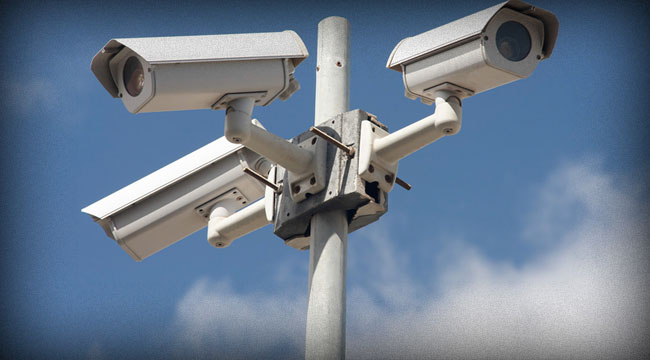 Yesterday, the Dayton City Commission held its first public hearing to consider new police surveillance technology under an ordinance adopted in May 2021. The Commission approved the use of automatic license plate reader technology under the provisions set forth in the ordinance, which requires public notification and a public hearing before Dayton Police can acquire, use, or share data from technology that collects personally identifiable information.
Yesterday, the Dayton City Commission held its first public hearing to consider new police surveillance technology under an ordinance adopted in May 2021. The Commission approved the use of automatic license plate reader technology under the provisions set forth in the ordinance, which requires public notification and a public hearing before Dayton Police can acquire, use, or share data from technology that collects personally identifiable information.Commissioner Matt Joseph led the process to write the 2021 ordinance and made this statement regarding its first usage: “I am glad we were able to put this innovative legislation into use in order to give citizens the opportunity to share their opinions of automatic license plate readers. We are certainly still refining this process and expect it to evolve moving forward. But I am very pleased that the City of Dayton has such a robust process in place to make sure that the Commission can fully weigh all of the implications of using surveillance technology and ensure that proper safeguards are in place.”
Dayton was the 20th municipality in the country to pass an ordinance laying out a public process to approve police surveillance technology. The ordinance was written in collaboration with community stakeholders and privacy advocates and passed unanimously.
The ordinance required Dayton Police to produce a surveillance impact report and a proposed use policy for the technology that was presented to the public 30 days prior to the public hearing. The City Commission then received written public comments and citizen comments at the July 20 public hearing prior to making a decision. The City Commission voted 3-2 to approve.
 “This is an example of democracy at work,” said Chief Kamran Afzal. The ordinance and the process that it lays out for approval of use of new technology requires checks and balances. This allows the City and police department to bring a new tool on board with the community’s assistance, so we are working with them toward impacting crime.”
“This is an example of democracy at work,” said Chief Kamran Afzal. The ordinance and the process that it lays out for approval of use of new technology requires checks and balances. This allows the City and police department to bring a new tool on board with the community’s assistance, so we are working with them toward impacting crime.”Prior to activating the mobile ALPRs, the Dayton Police Department will be conducting a close review of the concerns brought forward to the City Commission Wednesday evening. Chief Afzal will have discussions with his senior command staff to reflect on the points made and make sure the policy surrounding ALPRs is successful in the future.
If changes are made, the City and the police department will announce them publicly. There will also be announcements released to news media and City social media channels when the mobile ALPRs are scheduled to go live.
The process of using fixed-site ALPRs is much more involved than the mobile units. The Dayton Police Department will work closely with neighborhood partners and the Community Engagement Division to develop unique neighborhood safety plans. That process will allow identification of the needs surrounding neighborhood concerns and determine the best response strategies. If fixed-site ALPRs are one of the tools selected, then the procurement process will begin.
